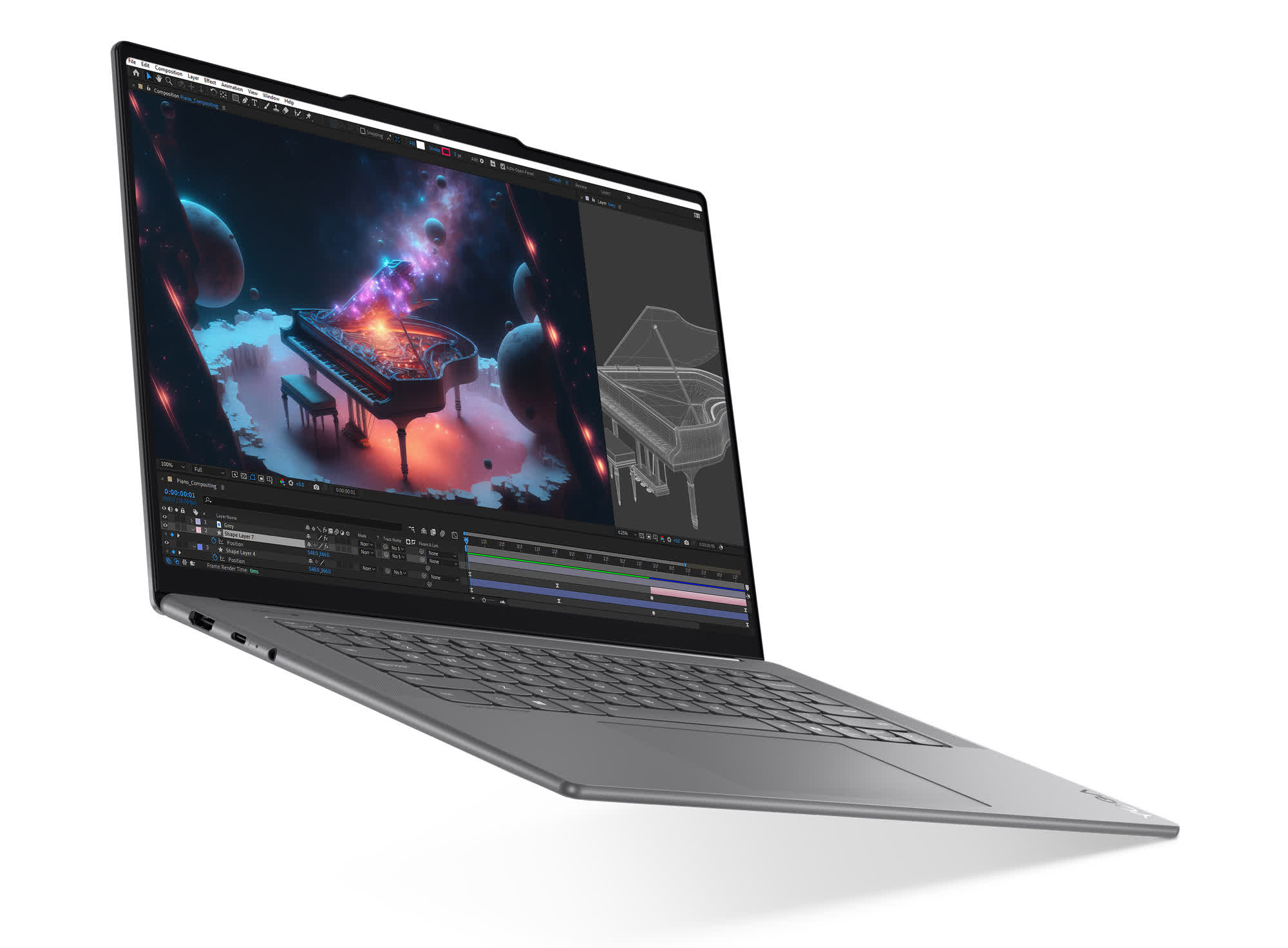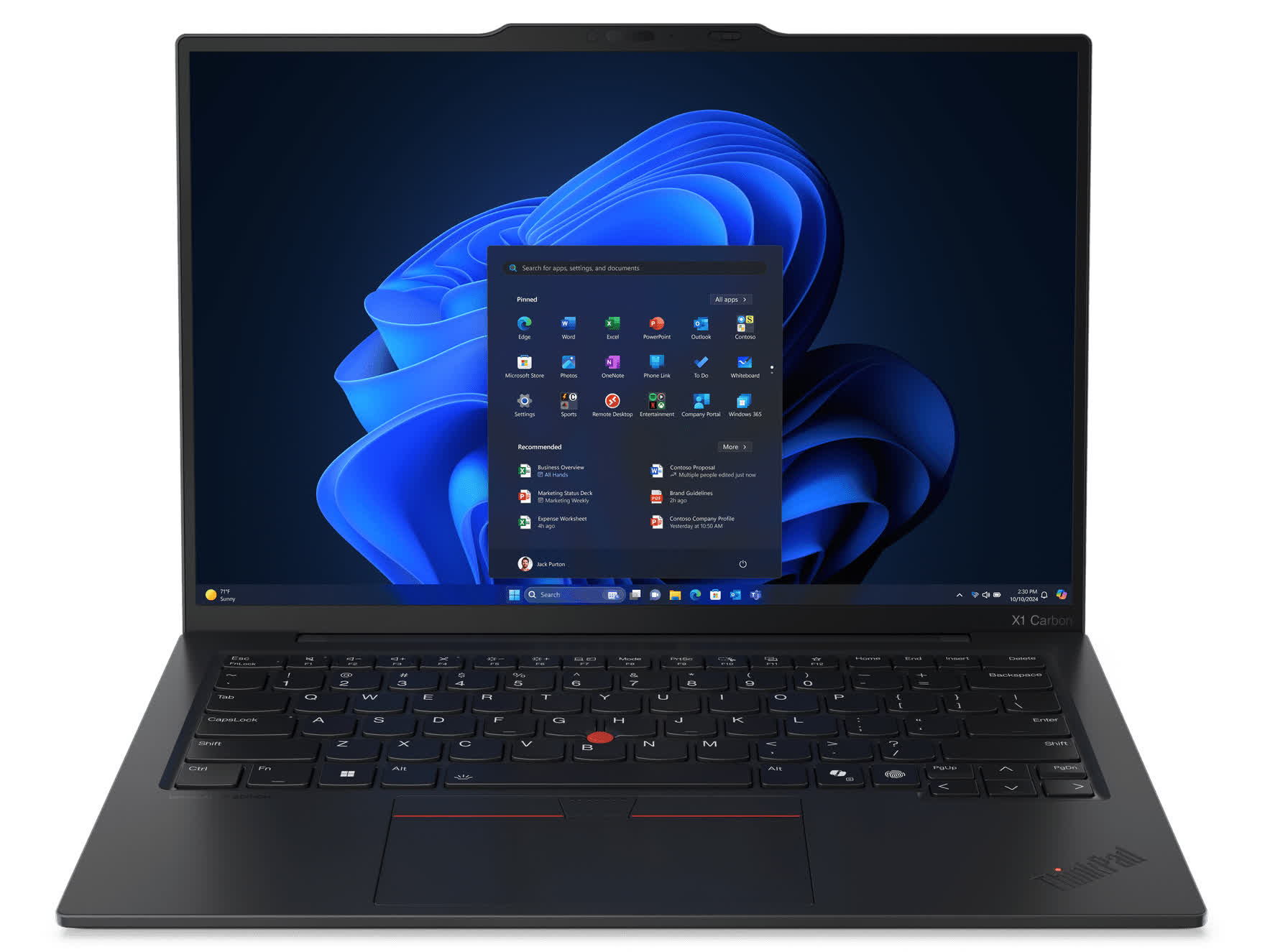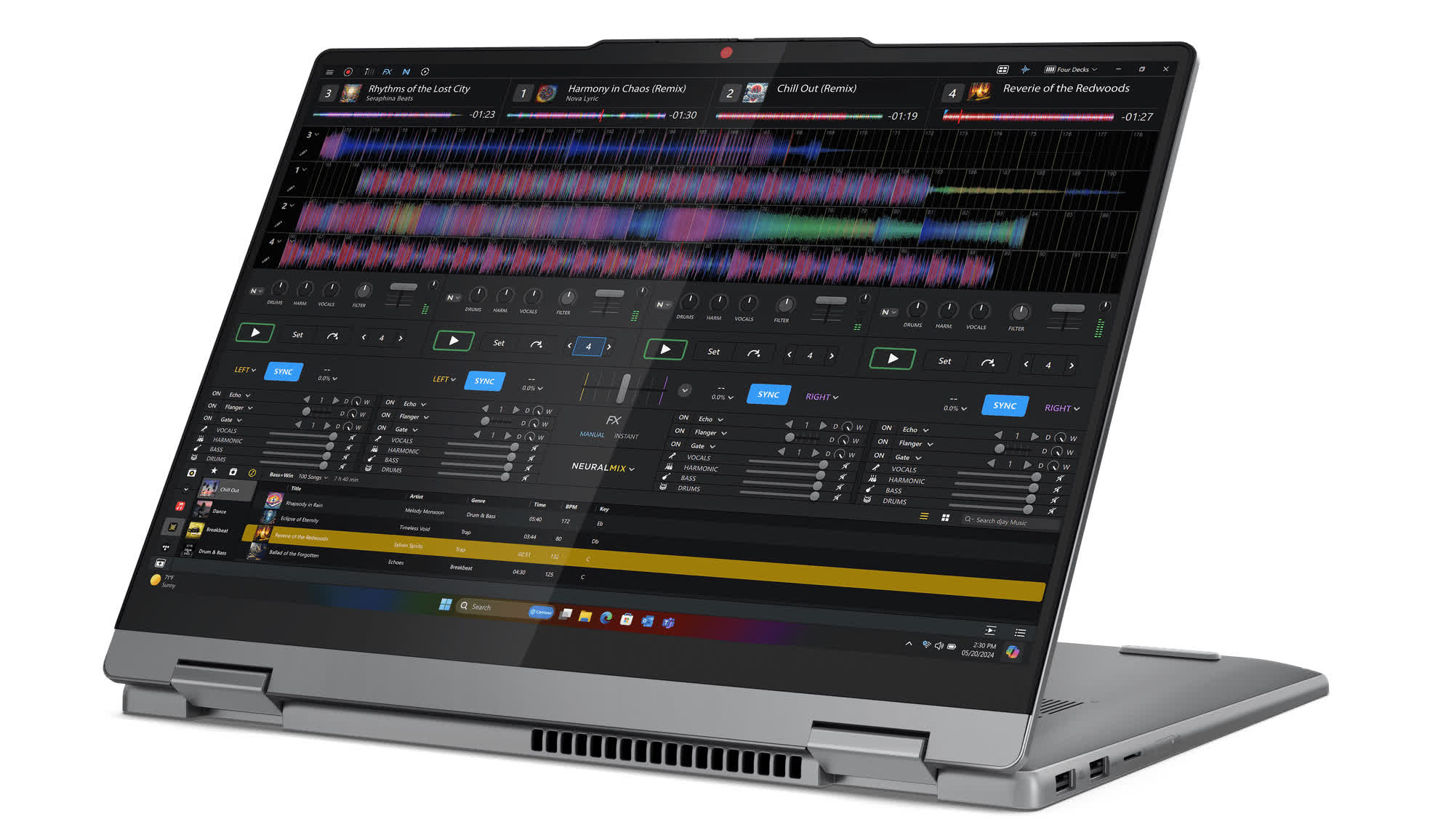The big picture: With recent developments in semiconductors for AI PCs, there have been many questions about how PC companies were planning to differentiate the various "flavors" of AI PC silicon across their product lines. At its Innovation World 2024 event in Berlin, Lenovo tackled the challenge head on by introducing a range of both consumer and commercial laptops that include the latest SoCs from Intel, Qualcomm, and AMD – all at once.
The net result of Lenovo's efforts is an impressive set of AI-capable notebook PCs that meet the Copilot+ standard that Microsoft laid out earlier this year. All the systems include not only the latest CPUs and GPUs from each of the major PC chip companies (several of which were just unveiled this week), but also NPUs that offer performance levels of 40 TOPs or higher.
Lenovo accomplished this by leveraging the wide range of sub-brands across its PC lineup – including ThinkPad, ThinkBook, Yoga, Yoga Pro, and IdeaPad – while placing chips from different vendors into different lines.
Yoga Slim 7i Aura Edition
Lenovo's approach means to bridge the AI PC chip divide currently facing the PC industry, however it also results in a somewhat overwhelming set of choices that, at first, might confuse buyers who want to explore multiple options.
Knowing that the consumer laptop featuring Intel's new Core Ultra Series 2 (aka "Lunar Lake") is the Yoga Slim 7i Aura Edition, for example, while the consumer PCs with Qualcomm's newest Snapdragon X Plus 8 Core are part of the IdeaPad Slim 5x takes a bit of sleuthing to figure out. Plus, in several of its product lines, Lenovo is using multiple different chip vendors. While some buyers may not care which chip powers their system as long as it meets the Copilot+ spec, extra research will likely be needed during the buying process.
Regardless, what's interesting about this set of new notebooks from Lenovo is that it shows how quickly things are evolving in the PC market and how rapidly AI PC options are becoming available across all market segments. Many in the PC industry have been talking about the launch of the AI PC era in a more conceptual way, but with big announcements like the ones Lenovo just made, the concept is very quickly becoming reality.
ThinkPad X1 Carbon Gen 13 Aura Edition
Lenovo's latest high-end ThinkPad notebooks include the ThinkPad X1 Carbon Gen 13 Aura Edition (featuring Intel's Core Ultra Series 2 and a 14" OLED display) and the ThinkPad T14s Gen 6 AMD (featuring AMD's Ryzen AI 9 365 chip and a 14" LCD panel). Lenovo also offers AMD- and Qualcomm-powered versions of its more affordable ThinkBook 16 Gen 7, each with a 16" LCD display.
The new Qualcomm-based version of the ThinkBook 16, which has an 8-core version of the Snapdragon X Plus chip and the same 45 TOP NPU from its larger siblings, is particularly intriguing as it offers the lowest entry price point ($749) of any Copilot+ PC system yet.
For consumers, the Yoga Slim 7i Aura Edition leverages Intel's new Core Ultra Series 2 SoC and a 15" LCD display, while the Yoga Pro 7 integrates AMD's Ryzen AI 9 365, which includes the highest-performing NPU on the market at 50 TOPs, paired with a 14.5" OLED display. Lenovo's latest Qualcomm-powered offerings include the IdeaPad 5x and the IdeaPad 5x 2-in-1 convertible, both of which feature 14" OLED displays and the Snapdragon X Plus 8 Core SoC.
Another interesting detail is that several of these machines also include AI-focused software and services that are designed to offer a unique Lenovo experience. While none of the major PC vendors have had a great track record with doing their own software, it's becoming clear that all of them are seeing opportunities for software-based differentiation in the AI PC era, so I expect to see quite a few efforts in this regard (particularly in conjunction with partners) moving forward.
Lenovo IdeaPad 5x 2-in-1 (14", 9)
Both the commercial and consumer Aura Edition PCs with Core Ultra Series 2 chips include unique capabilities that were co-designed by Intel and Lenovo. Smart Modes provide different settings that can be optimized for things like Privacy, Collaboration, Wellness and more. Smart Care is a white glove support service that lets owners of these devices get access to trained support personnel quickly (though I'd argue in an AI PC, an AI-powered digital assistant might be more appropriate.)
The most intriguing is Smart Share, which leverages Intel's Unison screen sharing software for easily moving photos and files back and forth between your PC and smartphone (either Android or iOS). While there are several tools for doing this, Smart Share leverages a smart touch-based sensor that immediately launches the app when you tap the side of your notebook with your phone.
The effect is a bit like tossing your phone's screen onto your laptop display, and it will be very intuitive for many users. For consumer PCs that include discrete GPUs, Lenovo also worked with Stability AI to create an app called Lenovo Creator Mode, which makes the process of converting text to images directly on the PC easy and fast.
Alongside AI PCs, Lenovo's Innovation World 2024 event also introduced lower-cost, non-Copilot+ PCs powered by AMD's Ryzen 7000 SoCs (the IdeaPad 5) and a new prototype with a motorized display called AutoTwist. As its name suggests, the AutoTwist AI PC features a screen that can rotate and be controlled by voice (through an AI-powered LLM). Unlike previous designs, the new Lenovo model can move autonomously, tracking the user's position during activities like video calls.
All told, Lenovo's event presented a broad range of new PC options, reflecting a snapshot of where the PC industry stands at the dawn of the AI PC era. While there are numerous options across various market segments and price points, the abundance of choices might overwhelm some buyers. However, Lenovo is bringing to life the possibilities created by Microsoft and the three major chipmakers (AMD, Intel, and Qualcomm).
Soon, other PC makers will likely offer similarly diverse product lines. The real test will be how well these choices perform in the marketplace. While it's too early to predict, it's bound to be an interesting development to watch.
Bob O'Donnell is the president and chief analyst of TECHnalysis Research, LLC, a market research firm that provides strategic consulting and market research services to the technology industry and professional financial community. You can follow Bob on Twitter @bobodtech



